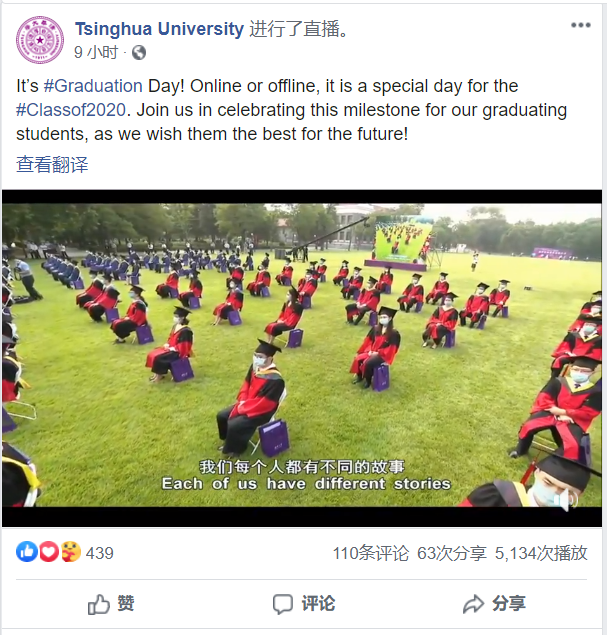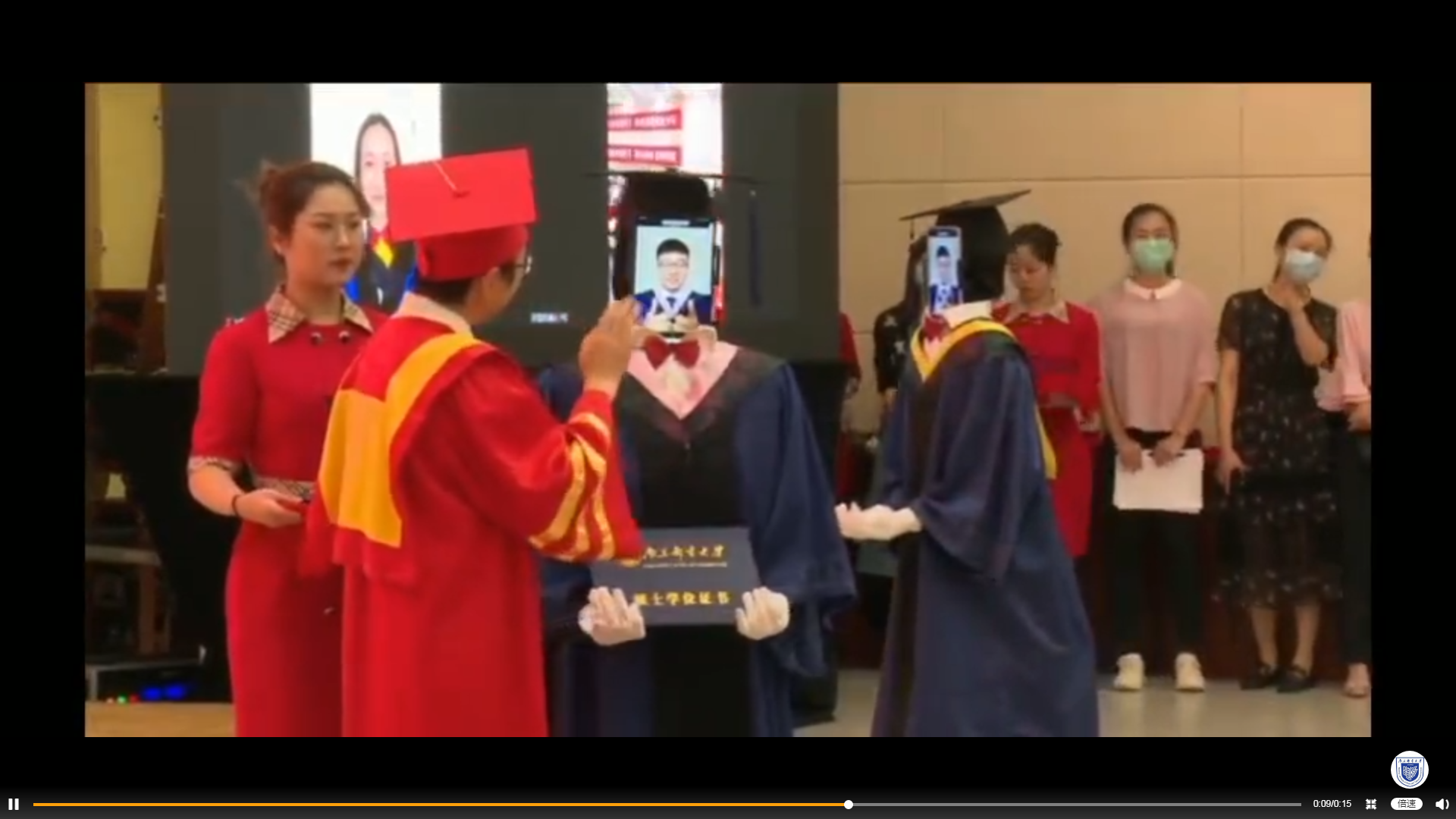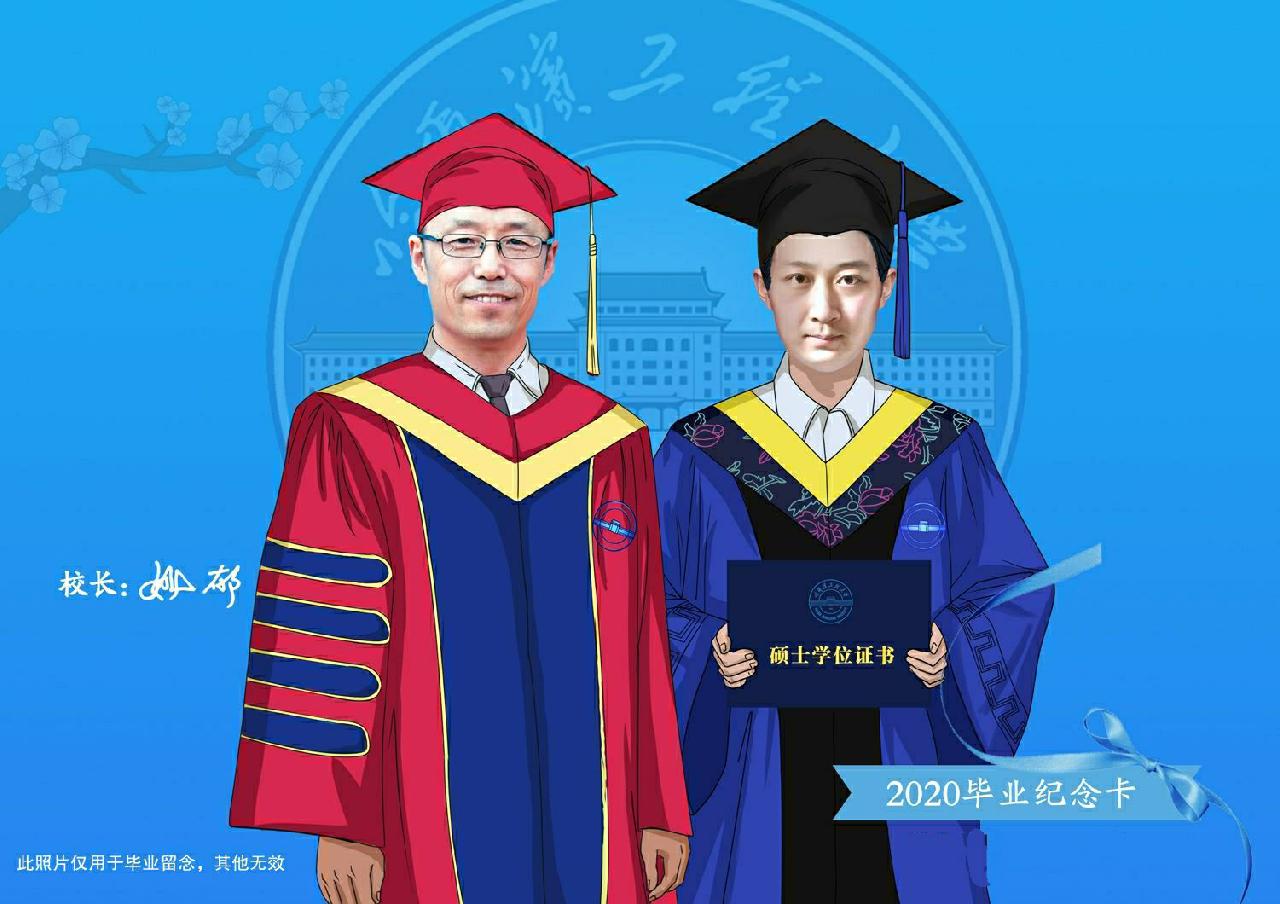Chinese college seniors celebrate graduation online amid COVID-19
- By Wang Yiming
 0 Comment(s)
0 Comment(s) Print
Print E-mail China.org.cn, June 24, 2020
E-mail China.org.cn, June 24, 2020
Without caps tossing, group photo shoot or even an in-person commencement, the graduation season of class of 2020 is anything but traditional. Currently, 8.74 million college graduates in China are celebrating their graduations online due to the COVID-19 epidemic.
According to a survey conducted by the China Youth Daily and Wenjuan.com, 88.6% of Chinese college graduates celebrated their graduation ceremonies online. The events they participated in included watching virtual graduation ceremonies, creating group photos, and recording graduation videos.
Though 85.7% of the surveyed expressed regret attending their college lives online, 83.1% still believed that this year's "online graduation" provided a sense of ceremony.
Virtual commencements
Universities across the country are moving graduation ceremonies online and trying their best to make alternative graduation plans.
"Due to the coronavirus concerns, today, we hold the first-ever online graduation ceremony in the history of Tsinghua University," Qiu Yong, president of Tsinghua University, said during the university's virtual graduation ceremony on June 22. "I believe that the graduation ceremony during this special period has a very special meaning for all graduates, and will definitely leave you an unforgettable memory."
Over twenty media and online platforms livestreamed the ceremony in Chinese and English. Although there is no degree awarding ceremony this time, Tsinghua University has promised that the graduates are welcome to return to campus for any future ceremony.

A special graduation ceremony combining traditional and virtual degree conferring events was also held at Nanjing University of Posts and Telecommunications (NUPT) in eastern China.
Telepresence robots wearing gowns and equipped with tablets showing the faces of students were used to receive diplomas in the absence of graduates. On the other side of the screen, the students waved and made heart hand gestures to their principals.

"To make up for the fact that you can't attend the in-person graduation ceremony, the university would like to entrust your parents to complete the tassel turning ceremony on behalf of the school," Yao Yu, president of Harbin Engineering University (HEU) said to the students via live streaming on June 3.
Yu Kun, a graduate majoring in Aerospace Science and Technology of HEU, expressed his excitement when his mother turned the tassel for him. "I was still able to wear the graduation gown and cap mailed by the university in advance and I had my tassels turned by my mother. At that moment I really felt pride."
Creative graduation photos
Apart from the online commencement, HEU also offered its students photoshopped graduation photos. Yu Kun showed understanding of the university's efforts, saying that though it's indeed a great pity to not have a real picture, this one-of-a-kind graduation photo is a unique memory.

A group of students of NUPT developed a WeChat mini-program for graduates to upload their selfies to create graduation photos themselves.






Go to Forum >>0 Comment(s)